5 common mistakes to avoid when growing herbs indoors
What you should not be doing when growing herbs indoors according to experts

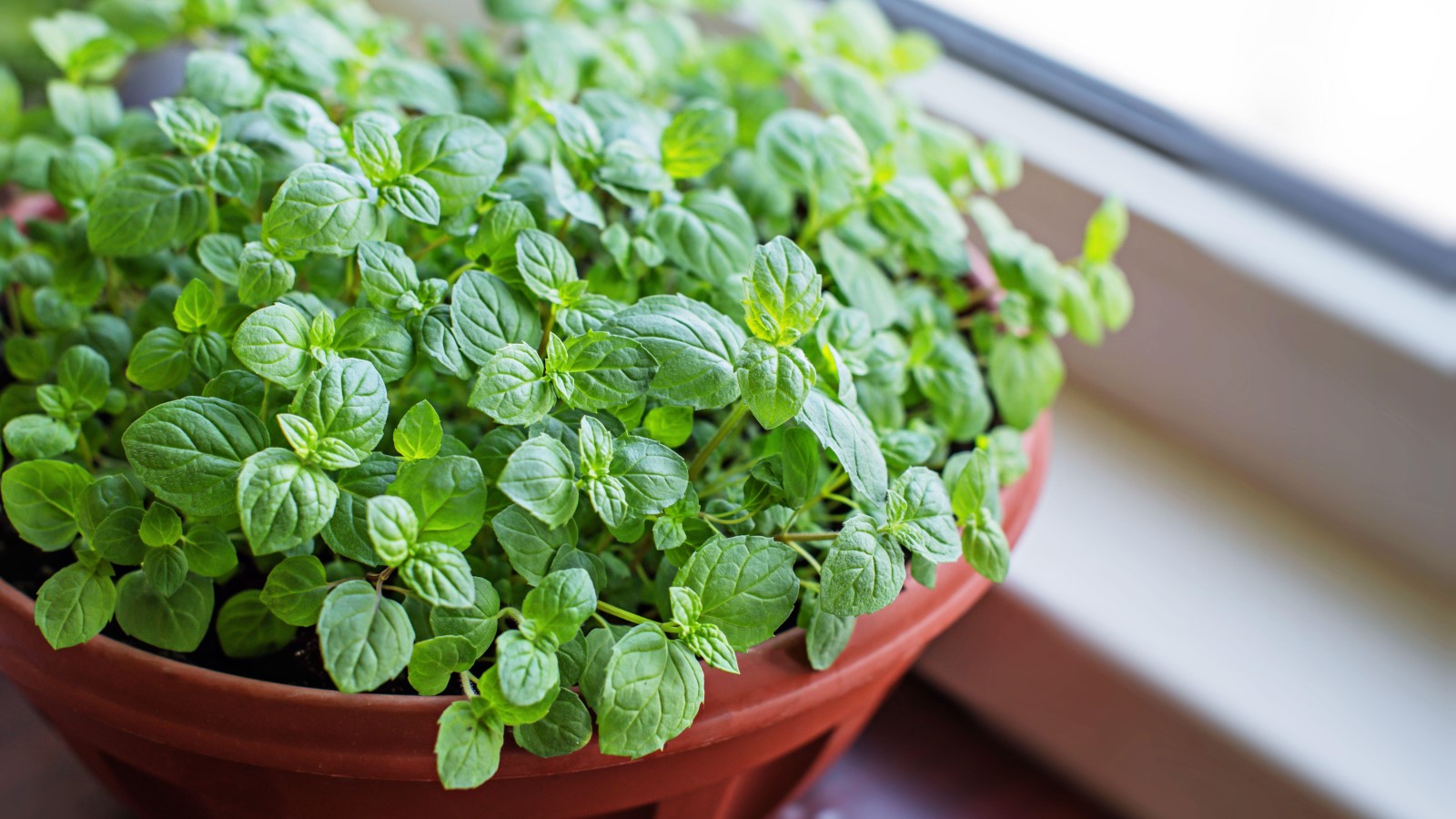
Growing herbs indoors is a great thing to do, not only do they make your kitchen smell amazing, but having herbs to hand when cooking is so practical too.
If you are short on space or have no outdoor yard, growing herbs on the windowsill of your kitchen is as good a place as any. You can start growing herbs indoors by propagating them yourself or simply buying them as baby plants from the garden center.
When it comes to caring for your herbs there are many things to consider, from where to position them, how much sunlight they need and how often they need watering.
5 common mistakes to avoid when growing herbs indoors
Looking after your herbs properly will mean that you can have a bountiful supply throughout the year. Below are five common mistakes you should not make according to experts.
1. Overwatering
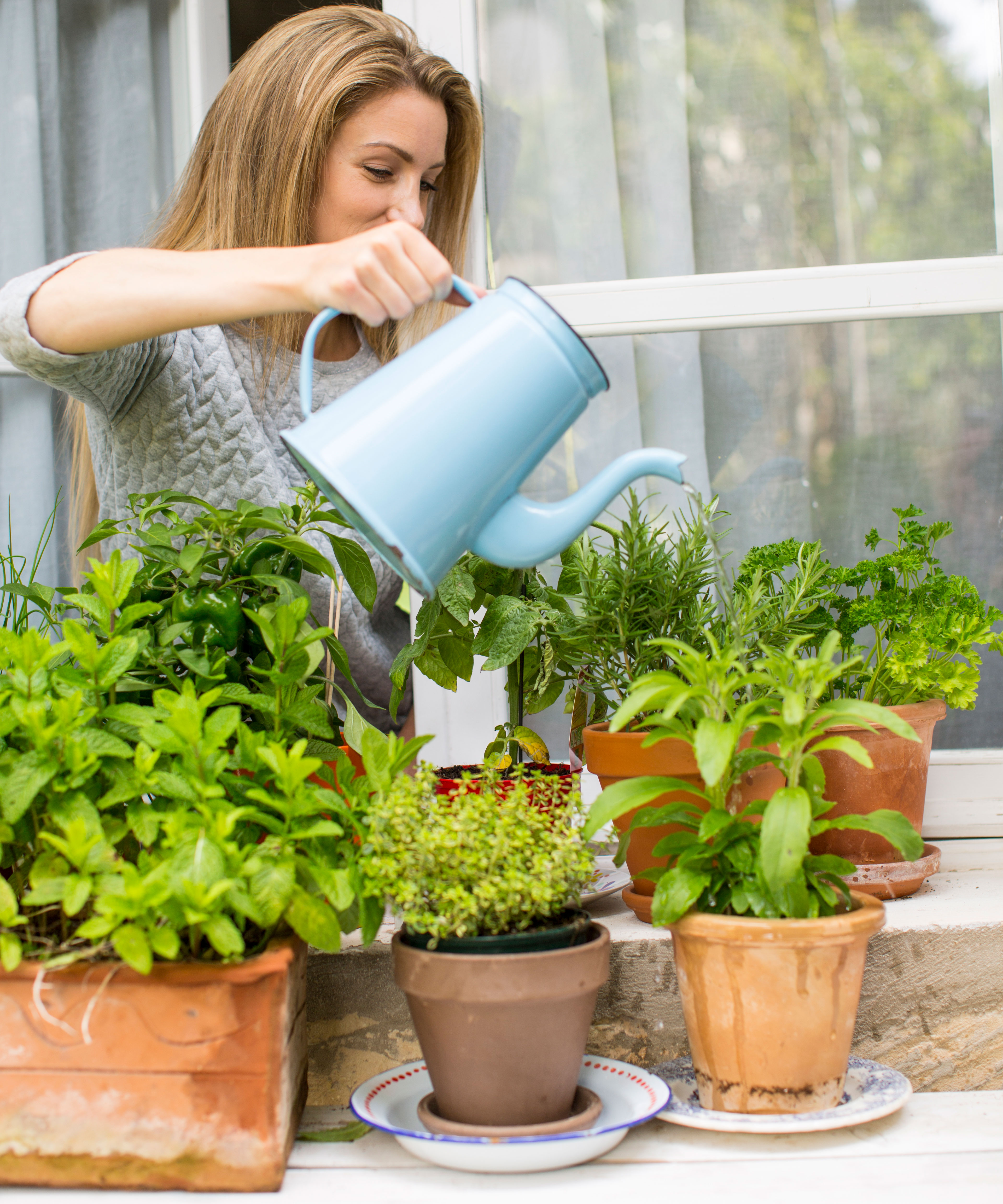
One of the most common mistakes that you can make when caring for herbs is overwatering. ‘It is important to provide adequate moisture, but herbs generally prefer well-drained soil,’ says Gene Caballero, Co-founder of GreenPal.
Overwatering your herbs can lead to root rot and other problems, it is important to check the soil regularly to make sure that it is not too dry or wet.
Ensure that the pots you plant your herbs in have good drainage holes, like these galvanized pots available from Amazon to allow the top layer of soil to dry out between watering.
Design expertise in your inbox – from inspiring decorating ideas and beautiful celebrity homes to practical gardening advice and shopping round-ups.

Gene Caballero is the Co-founder of GreenPal, a marketplace that makes it easy for Homeowners to find trusted pre-screened lawn care providers all across America.
2. Insufficient light
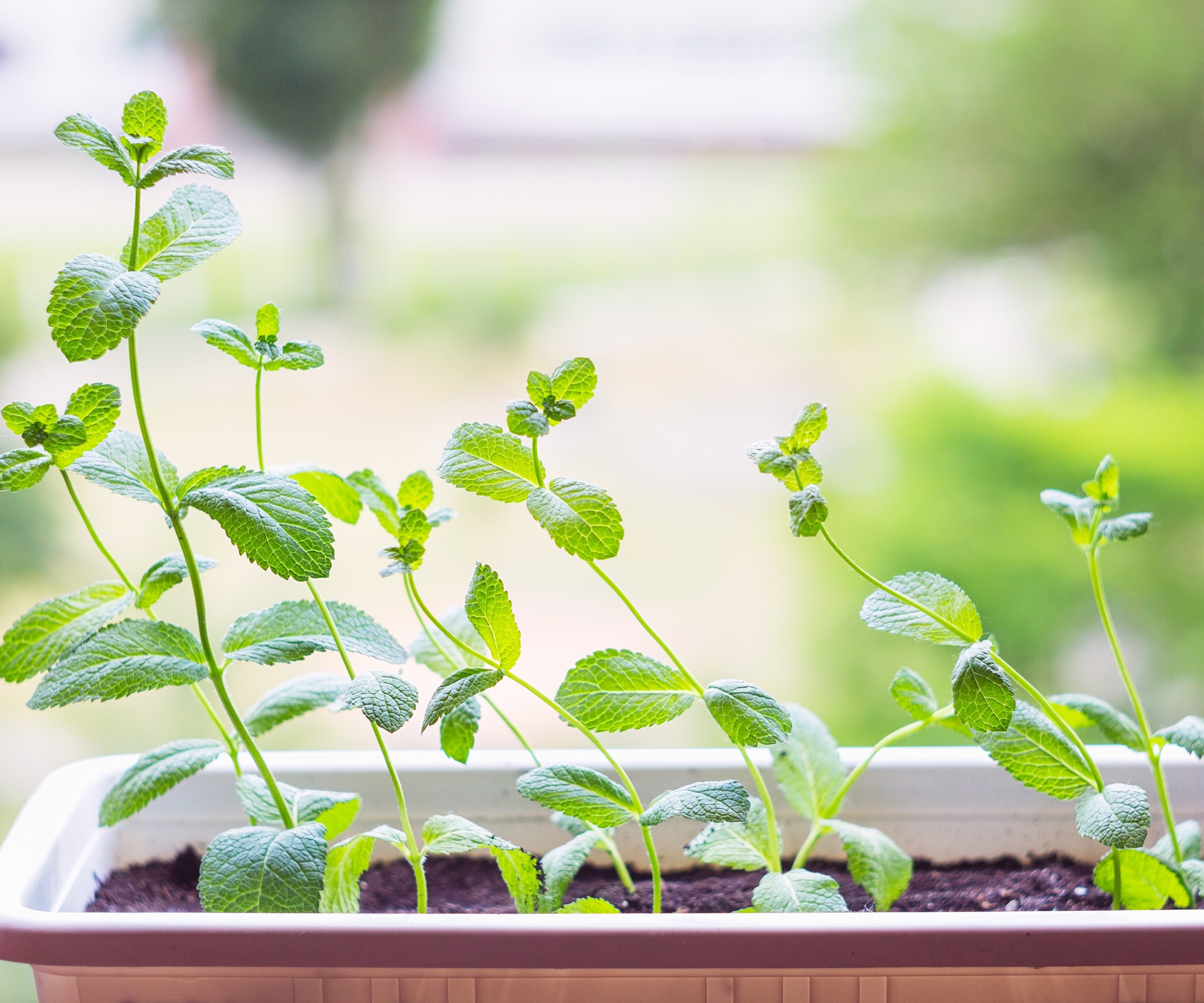
Gene Caballero, shares that another common mistake that is often made is giving your plant an inefficient light source. ‘Placing your plants in a spot with inadequate sunlight can result in weak and leggy growth’ Gene says.
Make sure to position your herb garden near a south-facing window if available, or you can use an artificial grow lamp available from Amazon to provide a sufficient light source instead.
3. Using the wrong pot or container
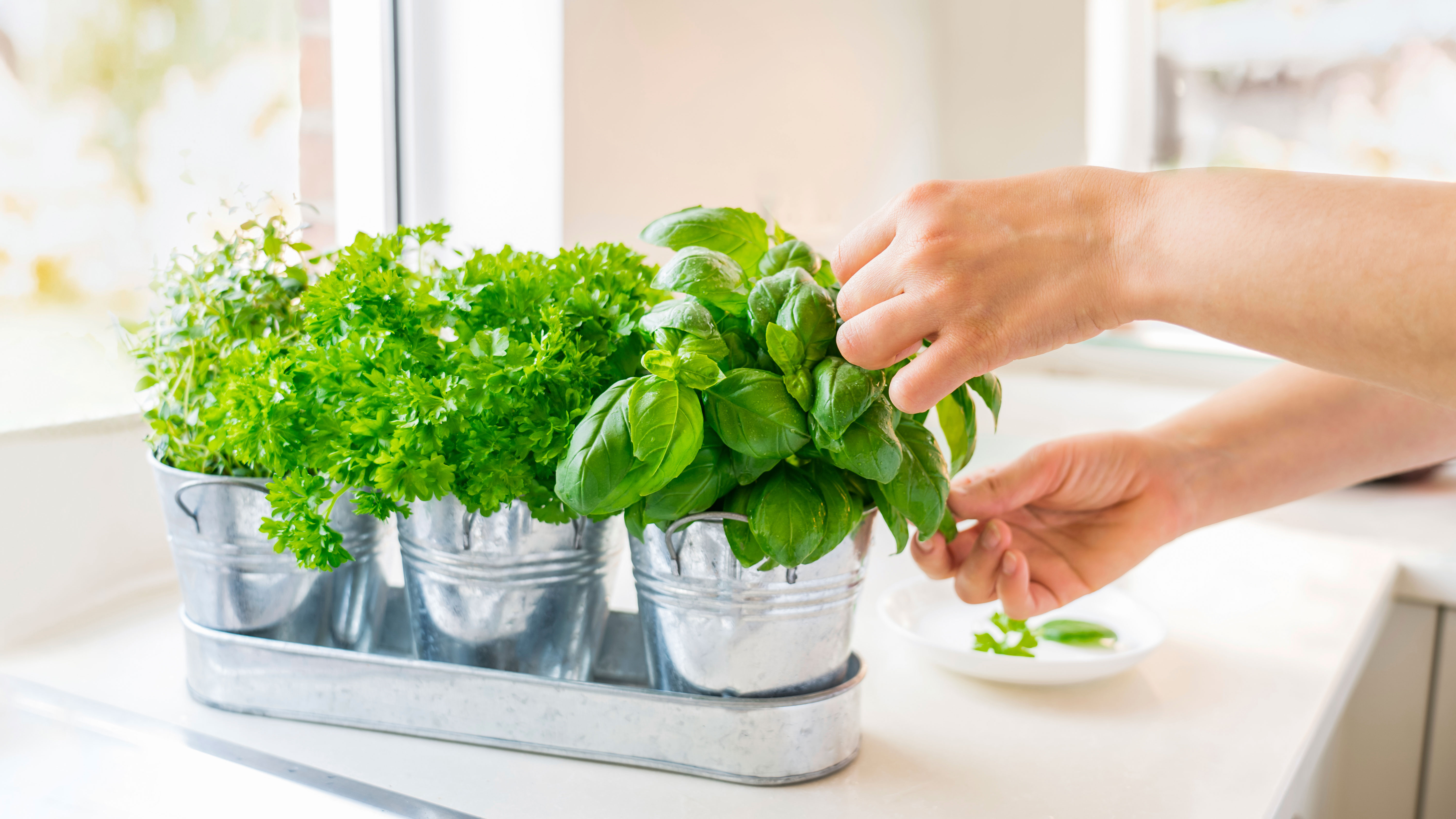
Selecting the correct pots or containers is crucial when growing herbs indoors. Pots without sufficient drainage or choosing pots that are too small will in fact hinder your herbs from growing.
Choose well-draining pots with sufficient space for root development. According to Izzy Goldberg, head landscaper at White Maple Landscaping, if you do not, then there is a higher risk of over-watering the herbs.

Izzy is the head landscaper at White Maple Landscaping a US-based landscaping expert, offering a wide range of services from full remodels to seasonal cleanups and weeding.
4. Neglecting pruning and harvesting
‘Regular pruning is an absolute must when growing herbs indoors as this promotes bushier growth and prevents leggy herbs,’ says Peter Schultz, head gardener at Thrive Green Life.
Peter also recommends harvesting your herbs regularly. This will encourage the continued growth of the herb and prevent the space from overcrowding. Regular harvesting will also prevent the herb from going to seed, meaning the plant has gone through its entire life cycle and will no longer produce yield.

Peter is a seasoned gardener dedicated to the art of cultivating and flourishing vegetables and flowers. He is also the Head Gardener at Thrive Green Life, a gardening blog based in the US.
5. Crowded planting
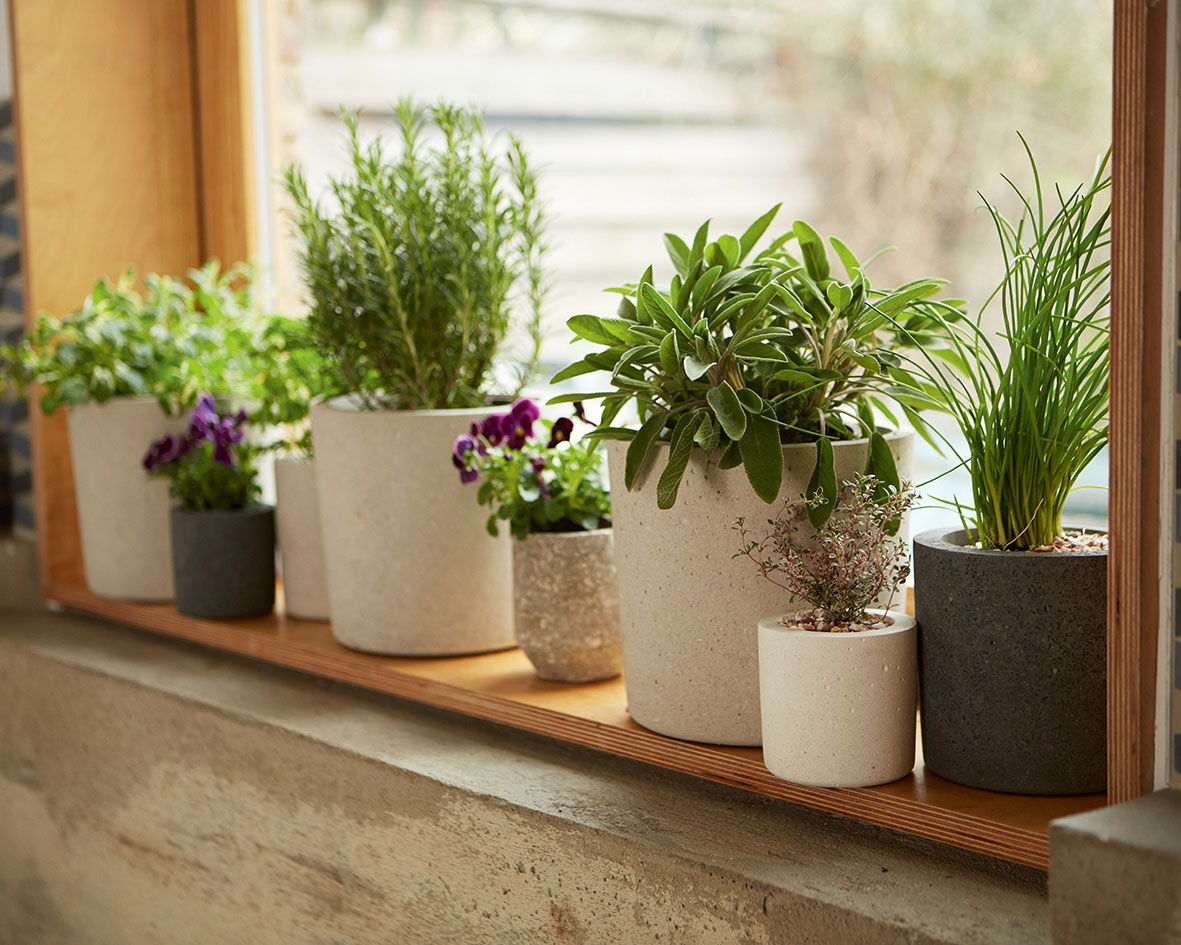
It's tempting to plant multiple herbs in a single container to save space, but overcrowding can lead to poor air circulation and an increased risk of diseases.
Give each herb enough space to grow and spread its roots, either by planting them in separate pots or providing sufficient distance between plants in a larger container
You can also ensure adequate ventilation by opening windows, using fans or placing herbs in well-ventilated areas.
What herbs should not be planted next to each other?
Fennel and cilantro and both incredibly competitive herbs so do not grow these next to one another. They will inhibit each other’s growth as both plants will compete for space and nutrients from the soil.
Growing herbs indoors should make no difference to the yield you can harvest. Provided the conditions are suitable and you avoid the mistakes listed, you can expect to collect herbs all year round.

Seraphina is a contributing editor at Homes & Gardens, writing Solved features on organizing and storage. She loves to decorate and also grow her own produce from her home in London. Her previous experience includes working at Women's Health and Fabulous Magazine.